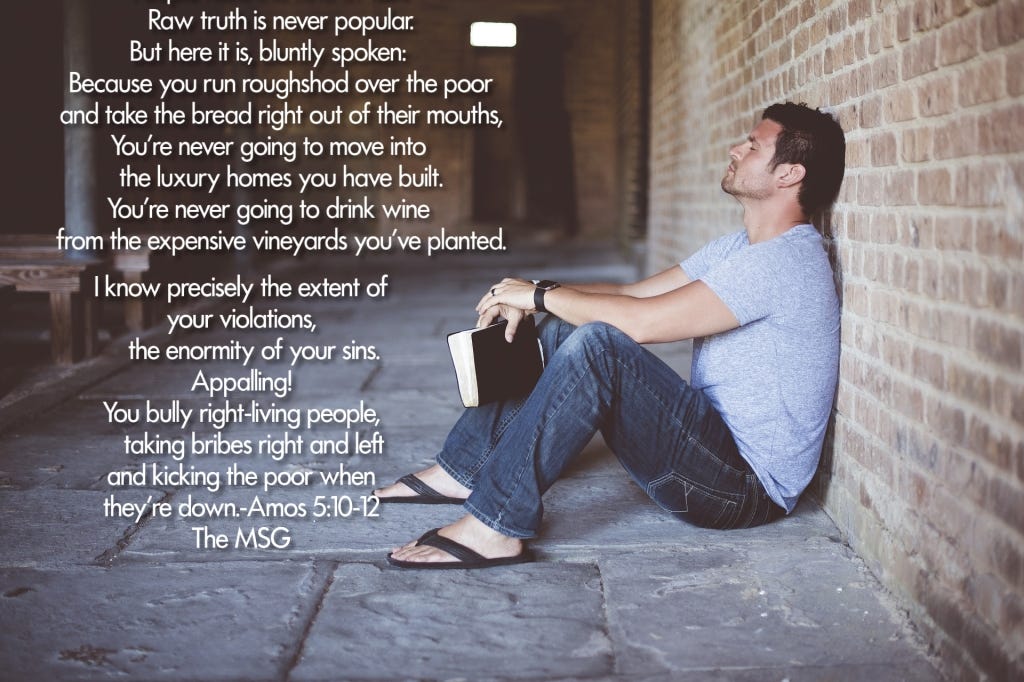Day 21: Speaking Out VS Complaining
#RethinkChurch is doing a 22-day journey for self-reflection based on John Wesley’s 22 questions. I am composing short blog posts addressing each question. I am using these posts to encourage Christians, especially Progressive and Mainline Christians to reflect deeply on what it means to be Church in a world marred by oppression and violence.
Day 21: Do I grumble or complain constantly?
There is a difference between simply grumbling and complaining and providing prophetic witness against institutions that continue to actively engage in racism, sexism, transphobia, homophobia, ableism and any other form of oppression. But those who are empowered or whose livelihoods are invested in maintaining the dominance of oppressive institutions will do everything in their power to ensure that the valid cries for justice by the subjugated are portrayed as simple grumbling and complaining.
Let me try to break it down for you, with examples:
Grumbling would be me complaining about having to wake up at 8:00am as a result of prearranged plans after having stayed awake until 2:00am watching Netflix.
Pointing out the ways that academia exploits graduate students and adjunct labor and publicly calling for redress is not an example of someone simply being bitter and complaining all the time.
Grumbling and complaining would be folks throwing a hissy fit that the church is replacing the ancient, dirty, falling apart red carpet with a brand new, clean, blue carpet.
Calling out the institutional Church for its blatant racism and for the exclusion of members of the LGBTQ+ community does not equate to grumbling and complaining.
Grumbling and complaining would be me getting angry that a restaurant on campus has a long line that I do not want to wait in.
Discussing how academia, as an institution is based on white supremacy and consistently drives women, people of color, queer people, and the disabled out is not an example of complaining and grumbling but it is a blunt recognition of reality.
Grumbling would be someone complaining that their favorite hymn was not sung in church one Sunday.
Demanding that the institutional Church grapple with the ways it has aligned itself with powerful entities that oppress, is not on the same level as complaining about a hymn.
Grumbling and complaining usually involve griping over some small, insignificant matter that one either does not have direct control over or one does have direct control over but refuses to take corrective action to alleviate their own suffering. Grumbling and complaining usually involve minor inconveniences or the denial of a small, but expected privilege.
But demanding that institutions talk frankly and publicly about issues of social justice and acknowledge the significant ways they fall short in meeting their lofty ideals is NOT an example of grumbling and complaining. People from marginalized groups who speak frankly about their experiences with one another are not “grumbling and complaining” and they sure as hell are not making institutions of power look “bad.”
Institutions, including academia and the Church that seek to dismiss every valid critique lobbied against them as a form of “grumbling and complaining” while proclaiming to value diversity and justice are in fact, hypocrites. They only elevate the voices of the marginalized when the words that are spoken benefit the institution. When the marginalized have the audacity to publicly share their experiences and take control of their own stories, institutions fight back by first trying to silence them and by discrediting them.
In fact, institutions often mumble and grumble about the fact that members of marginalized groups have their own agency. They insist that their crumbs of kindness should be repaid by the unfaltering loyalty of the very group that they systematically exclude from positions of power. Institutions of power are the ones that complain that those from marginalized groups decide to publicly recount their stories instead of remaining quiet and working within the very system whose goal is superficial change.
Sadly, there are many Christians who believe that it is God’s will for them to remain quiet even when they have the privilege and power to agitate for change. These Christians will quote Bible verses about respecting and obeying authority while ignoring other Bible verses that point to God’s fierce protection over the subjugated. These Christians often get mad at others who dare to follow Jesus and side with those who are powerless. They mumble and complain about being called out for their inaction. Those who use their faith to justify silence in the face of injustice and who actively try to discredit those speaking the truth about oppression, are distorting the Gospel.
Ask yourself, do you advocate for justice or are you constantly complaining that those who fearlessly speak out are inconveniencing you?
Do you support those from marginalized groups or are you trying to silence them?
Are you trying to create a more equitable or just world are you grumbling that you might need to let go of whatever amount of privilege and power you cling onto?
Day 1: Illusions of Perfection
Day 2: The Dangers of Embellishment
Day 3: Loose Lips Sink Ships or Silence Kills?
Day 5: The Oppression of Professionalism
Day 6: Mental Illness and Distorted Thinking
Day 8: Making Sense of the Bible
Day 9: Praying to Cosmic Santa Clause
Day 10: The Importance of Talking…and Listening
Day 11: The Necessity of Economic Justice
Day 12: The Sacredness of Rest
Day 13: Obeying the Greatest Commandments
Day 15: For the Brokenhearted…
Day 16: Jealousy, Anger, and Viciousness on Social Media
Day 17: Spending Time with God



